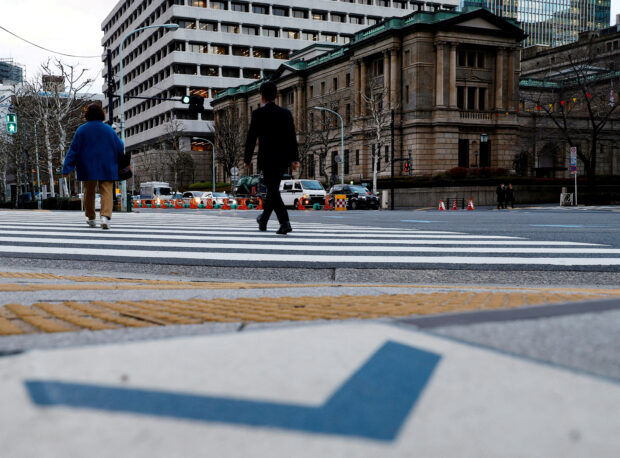BOJ views wage talks as key to timing of stimulus exit, Ueda says

People walk in front of the Bank of Japan building in Tokyo, Japan Jan 23, 2024. REUTERS/Kim Kyung-Hoon/File photo
TOKYO — Bank of Japan Governor Kazuo Ueda said the ongoing annual spring wage negotiations between companies and unions are critical in deciding when to phase out its massive stimulus program.
The central bank will consider tweaking its policy framework that comprises a negative interest rate, bond yield control and other tools, if sustained achievement of its 2 percent inflation target comes into sight, Ueda told parliament on Wednesday.
“The outcome of this year’s annual wage negotiation is critical” in deciding on the timing of an exit from massive stimulus, Ueda said.
READ: Japan Inc set to offer big wage hikes, paving way for end to negative rates
“Labor unions have made demands for fairly high pay. We’re seeing many companies make offers, including today. We hope to reach an appropriate decision looking comprehensively at these results,” as well as other data, he added.
The remarks come ahead of the central bank’s policy meeting next week, where the board will debate whether the outlook is bright enough to end its negative interest rate policy in place since 2016.
READ: Toyota Motor agrees to biggest wage hike in 25 years
Toyota Motor agreed to give factory workers their biggest pay increase in 25 years on Wednesday, heightening expectations that bumper pay raises will give the central bank leeway to make a key policy shift next week.
Sources have told Reuters a growing number of BOJ policymakers are warming to the idea of ending negative rates at the March 18-19 meeting on expectations of hefty pay hikes in this year’s annual wage negotiations.